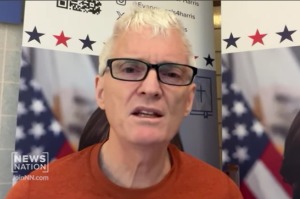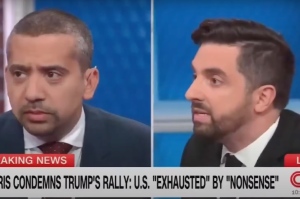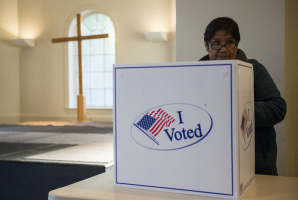Gov't Recognizes Large Role of Faith-Based Groups in Disaster Relief
As congregations in the Gulf Coast and surrounding states begin to focus on long-term recovery from Hurricane Katrina, a closer relationship between churches and state and local governments is developing.
As congregations in the Gulf Coast and surrounding states begin to focus on long-term recovery from Hurricane Katrina, a closer relationship between churches and state and local governments is developing, observed the Associated Press in a report on Friday.
Most recently, the Federal Emergency Management Agency (FEMA) chose the United Methodist Committee on Relief (UMCOR) to lead a consortium of providers in a two-year case management grant worth $66 million. Under the new agreement, at least 300,000 of one million displaced in the Gulf Coast by Hurricane Katrina will come closer to receiving the financial and emotional help they need to recover their lives and become self-sustaining.
“The trend fits neatly with Bush's second-term goal of encouraging states and cities to get more involved with his faith-based initiative," the AP report continued, “since large sums of tax dollars go to states as block grants.
The Bush administration says that the churches' hurricane response has shown that faith groups can help people in ways government can't. Using this argument, the administration has steered federal relief dollars to religious service organizations, the AP report claimed.
Diana Jones Wilson, president of Faith Partnerships in Raleigh, N.C., told AP that her network of churches expanded into disaster relief after Hurricane Floyd hit the state in 1999. The group now trains churches in other states to provide relief aid and sent a team of clergy to Louisiana to advise congregations after Katrina.
"Churches tend to become more engaged following a disaster," she said.
During a visit to Wilma-hit south Florida on Thursday, President Bush and his brother, Florida Gov. Jeb Bush, thanked volunteers from the Tennessee Baptist Convention Disaster Relief operation and members of First Baptist Church in Pompano Beach for preparing more than 12,000 meals since an early morning arrival the previous day.
Gov. Bush said he was thankful to see Southern Baptists at work again in Florida, alongside Florida Baptists.
“Florida Baptists are always here,” he told the Florida Baptist Witness newsjournal. “You were here last year and you are here now. Thank you.”
According to the Baptist Press, Southern Baptist disaster relief almost overnight had matched the level of relief deployed in Mississippi or Louisiana at the height of emergency relief efforts in those states after Hurricane Katrina, with about 1,500 volunteers now on the ground in Hurricane Wilma-ravaged South Florida.
“We now have 16 kitchens in full operation, which is equivalent to what we had in Mississippi or Louisiana,” Jim Burton, director of volunteer mobilization for the North American Mission Board, told BP. “It’s not a small operation.”
Meanwhile, BP reports that another 7,000 SBC volunteers continue to serve in the wake of Hurricanes Katrina and Rita in the Gulf States of Louisiana, Mississippi, Alabama and Texas.
The Southern Baptist Disaster Relief (SBDR) – the relief agency of the Southern Baptist Convention – is currently the third-largest disaster relief operation in the country behind the American Red Cross and The Salvation Army.




























